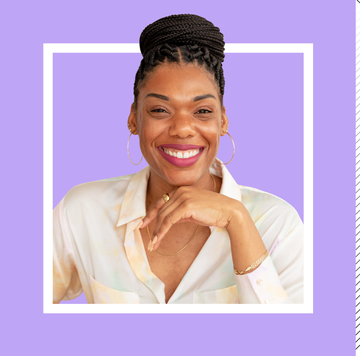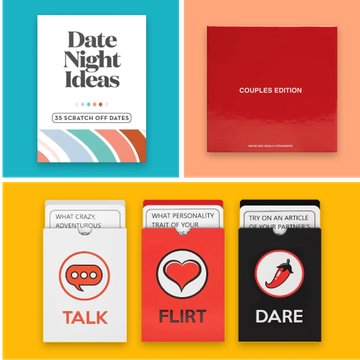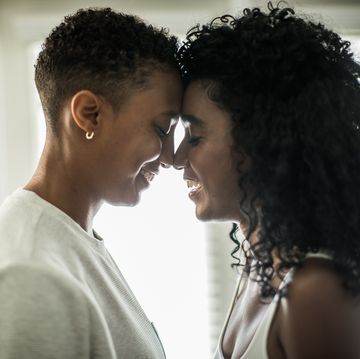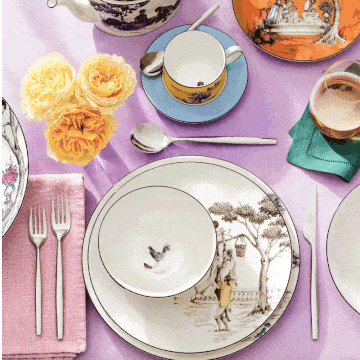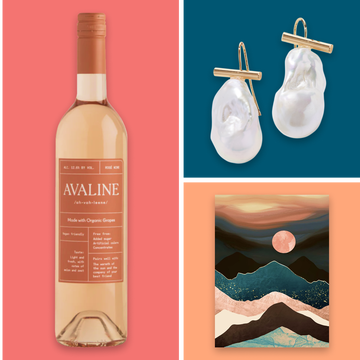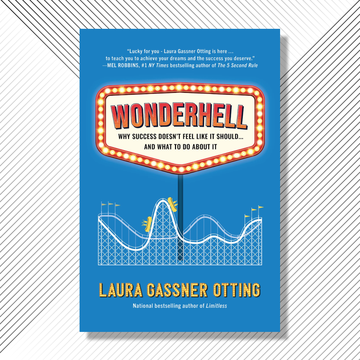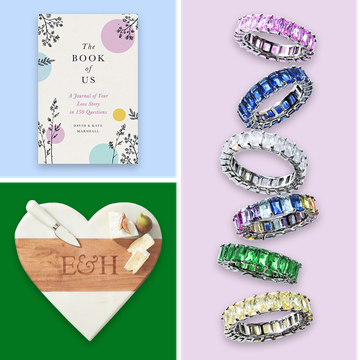Last month, The Idol mercifully came to an end. The five-part series, directed by Sam Levinson (of Euphoria fame) and starring Abel “The Weeknd” Tesfaye (of softly pornographic pop-music fame) alongside Lily-Rose Depp (of famous-parent fame), was billed as an edgy exposé on the music industry. But it turned out to be a plotless montage of boobs, chain-smoking, and disturbingly romanticized domestic abuse.
To my great feminist relief, the show was universally lambasted by professional critics and internet trolls alike—it was the worst-reviewed show in HBO’s history. But the more brutal (and hilarious) memes I saw of Tesfaye’s stomach-turning sex scene dialogue and the more I read about how it seemed like “Levinson and his actors are talking dirty for the very first time,” the more I began to worry that the justified criticism of the fictionalized sex might lead to some unnecessary shyness in real-world bedrooms. I mean, talking dirty is vulnerable, and I feared that seeing professionally hot people fail so miserably and publicly at it might be enough to silence a whole generation. I decided to phone a friend—actually, two of them—for advice on how to vocalize your desire without feeling like a rat-tailed club owner/cult leader on HBO.
Emily Morse is the host of the hit podcast Sex with Emily and the author of Smart Sex. Steph Zapata is an award-winning sex educator and consultant. (Zapata uses both she and they pronouns). Together, they gave me a crash course in authentic and hot dirty talk.
More From Oprah Daily

Step 1: Understand its power
“When I first started having sex, I was terrified of using my voice,” Zapata admits, “and it was because I didn't like the concept of dirty talk—I’m not dirty, I don’t want to be dirty.” They found that rephrasing the act as “sensual communication” helped her understand it not as some polished, pornographic performance but as a means of connecting with another human being.
According to Morse, we actually have erogenous zones in our brain that are hardwired to respond to both physical sexual stimulation and sexual conversation. “I always say that our brain is our biggest sexual organ,” she says.
That organ has a lot to process during a sexual experience. There are so many body parts and emotions—it’s easy to get out of the moment and into your head. Dirty talk, sensual communication—whatever you want to call it, a sexual dialogue can help you stay present. There’s much less space in your brain to obsess over the lighting or your overflowing email inbox when you’ve got someone filling up your ear with sexy whispers. But what exactly are you supposed to be whispering about? Well, that leads us to step 2.
Step 2: Describe, describe, describe
A lot of the time, when people think of “dirty talk,” they think of the sort of graphic and vulgar dialogue used in porn. But, as The Idol so skin-crawlingly illustrates, busting out these kinds of lines without warning can be at best intimidating and at worst degrading (and not in a sexy way). They also risk sounding, well, like lines. Your partner is having sex with you—borrowing phrases from some stranger on the internet can feel impersonal or affected, or even, let’s face it, cringey for both parties.
Instead, both Zapata and Morse encourage all of us to start out by simply narrating our experience. “Just embody Morgan Freeman,” Zapata suggests. Tap into your five senses and ask yourself questions such as these: How is your breathing changing? Are your muscles tensing? Do you like the way your partner smells, feels, looks, tastes, or sounds? This technique gives you the chance to tune in to what’s happening in your own body and gives your partner a very specific and genuine ego boost. “It’s sort of a win-win,” says Morse.
Step 3: Expand your comfort zone
Narration, Zapata explains, is the “simplest, easiest, and least risky” way to initiate a sexual dialogue; you don’t have to put yourself out there by voicing what you want or instructing your partner to take any action—you’re just stating what’s already happening!
But if you want to take it to the next level, try talking to your partner about what sort of words, phrases, and tones turn each of you on. While this may sound clinical, it doesn’t have to be. Depending on the way you set up the conversation, talking about sexy talk can pretty easily lead to actual sexy talking, so it’s a great form of foreplay.
Maybe you aren’t sure how you like to be talked to during sex, and that makes sense! Most people only hear dirty talk—outside of their own bedrooms—via porn, and most porn is made by men and for men. It’s hard to know what you like if you’ve never gotten a taste of it before—so try expanding your palate. Morse recommends checking out feminist/ethical porn sites, listening to audio erotica, and even reading erotic stories aloud to your partner to gauge which phrases feel natural to say. Inspiration doesn’t always have to be explicitly sexual; Zapata has found some great source material from ’90s R&B songs.
Step 4: Accept that you may still feel like an idiot—and hey, that can be hot
Part of what made The Idol’s sex scenes so uncomfortable (beyond the violent misogyny, of course) was how hard everyone involved tried to make them flawless: the Weeknd's character literally practices his lines in the mirror before delivering them to Lily-Rose Depp’s pop starlet protagonist, who waits upstairs, posing like a lonely pinup doll on a zebra print rug in cartoonishly elaborate lingerie.
But sex is not about perfecting moves and showing them off; it’s about mutual discovery: trying things out, taking risks, and, yes, making mistakes. “You really have to befriend your cringe,” Zapata tells me. As any 14-year-old boy can tell you, sex is funny. It’s best to embrace the humor, the moments of awkwardness, playfulness, messiness, and imperfection. After all, nothing feels better than a good laugh. Well, almost nothing.

Charley is a Books Editor at Oprah Daily where she writes about authors, writing, and reading. She is also a freelance writer and audio journalist whose work has been featured in the Atlantic, the Los Angeles Review, Agni, and on the Apple News Today podcast. She is currently completing an MFA in creative nonfiction at NYU and working on an essay collection about the intersection of grief, landscape, and urban design.




